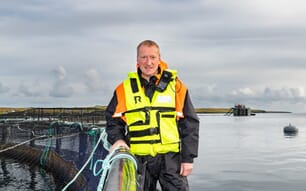"The current Greenpeace campaign focussing on the use of Fish Aggregating Devices (FADs) in tuna purse seine fisheries highlights the organisation's unwillingness to understand effective fisheries management," says Peter Bodeker, Chief Executive of the New Zealand Seafood Council.
The NZ Seafood Council states that despite quoting figures from the International Seafood Sustainability Foundation (ISSF) on bycatch rates, Greenpeace has not taken up the opportunity to work with this group to make improvements to tuna fishing.
Mr Bodeker said effective fisheries management is primarily about ensuring catch rates are appropriate.
"In New Zealand that is achieved through the setting of quotas. For highly migratory species, like tuna, which swim through the waters of many nations and international waters, good fisheries management requires cooperation through regional fisheries management organisations."
"Regulations governing fishing practices, such as the use of FADs, may well be part of the measures adopted."
"The New Zealand seafood industry supports the effective management of these fisheries through the West and Central Pacific Fisheries Commission (WCPFC) and its own quota management system (QMS)."
"It also works closely with credible regional fisheries organisations such as the WCPFC to look at ways of reducing the bycatch of juvenile tuna and other species."
"We hope that the public appreciates that the key to achieving sustainable fisheries is about more than the use (or not) of FADs as Greenpeace would have them believe."
Fisheries Management More Than Just a FAD
NEW ZEALAND - The New Zealand seafood industry has disagreed with a statement made by the NZ Sport Fishing Council which claims that "Greenpeace is doing a great job attracting attention to bycatch issues in tuna fisheries in the western Pacific Ocean".


